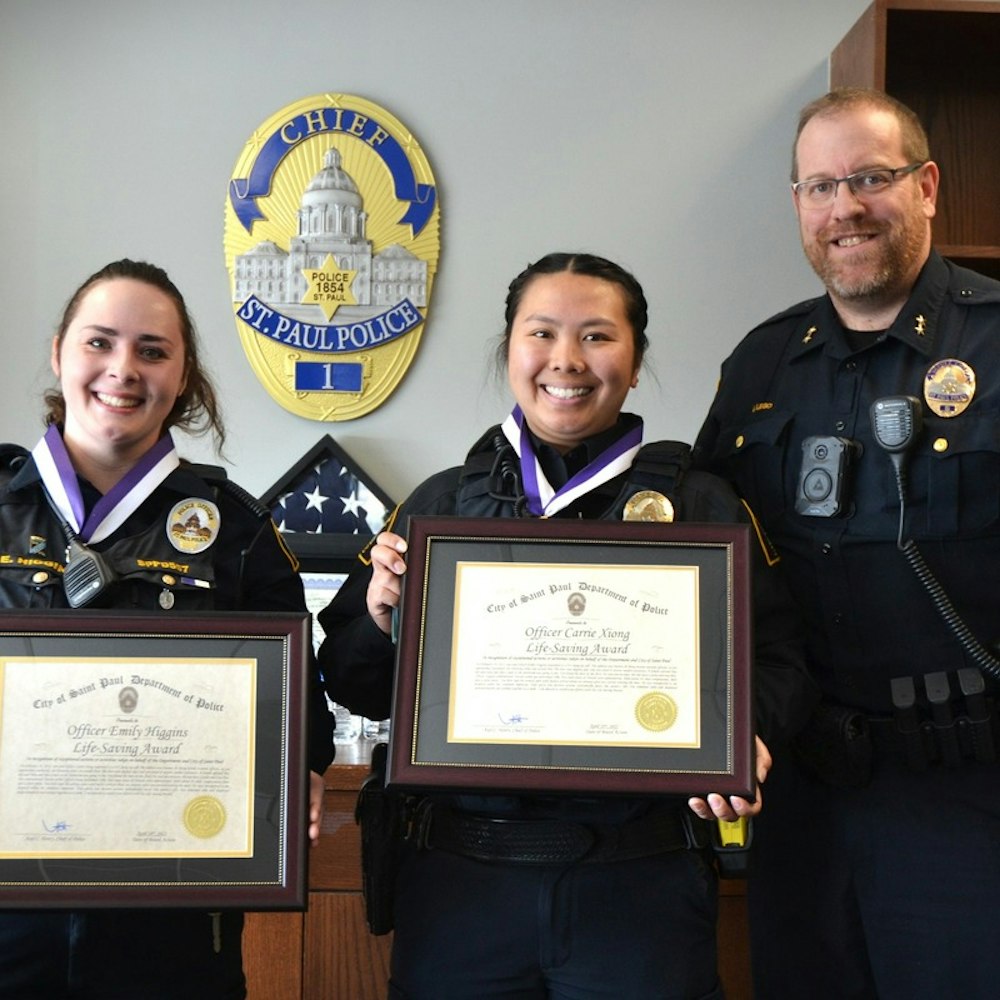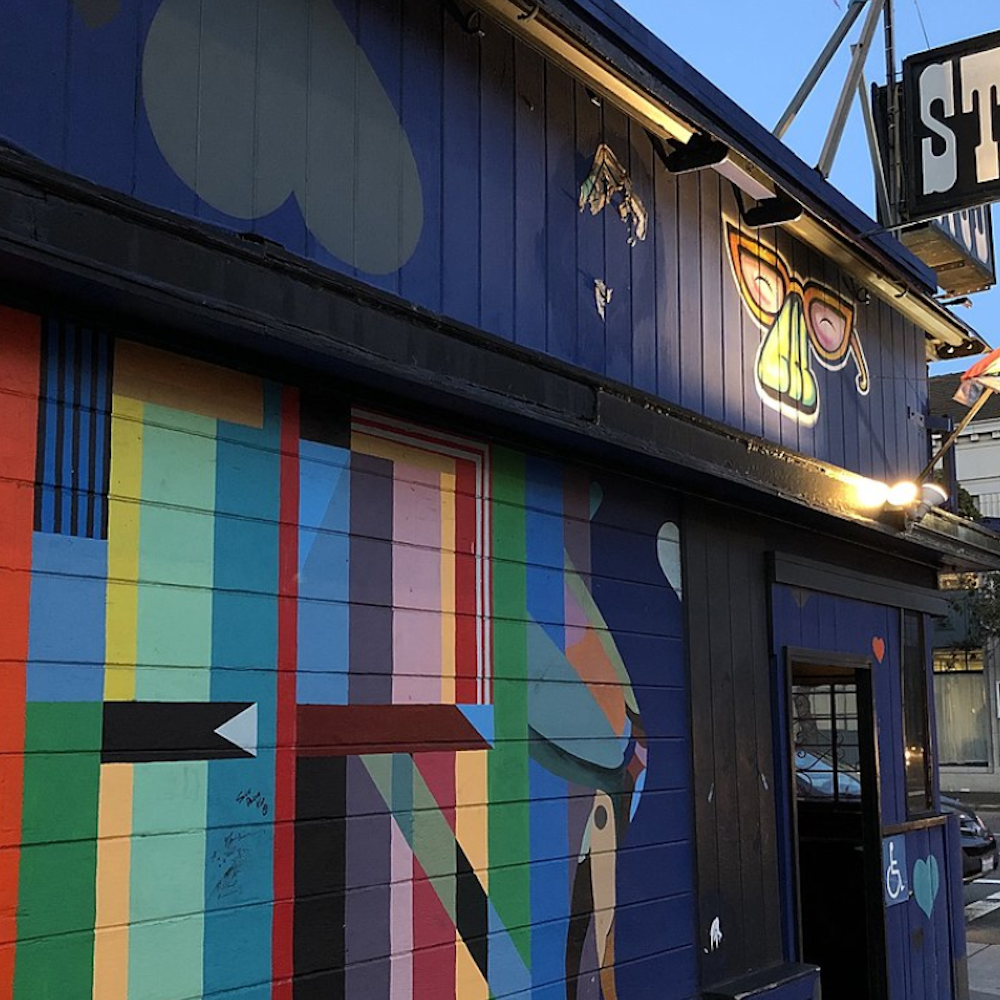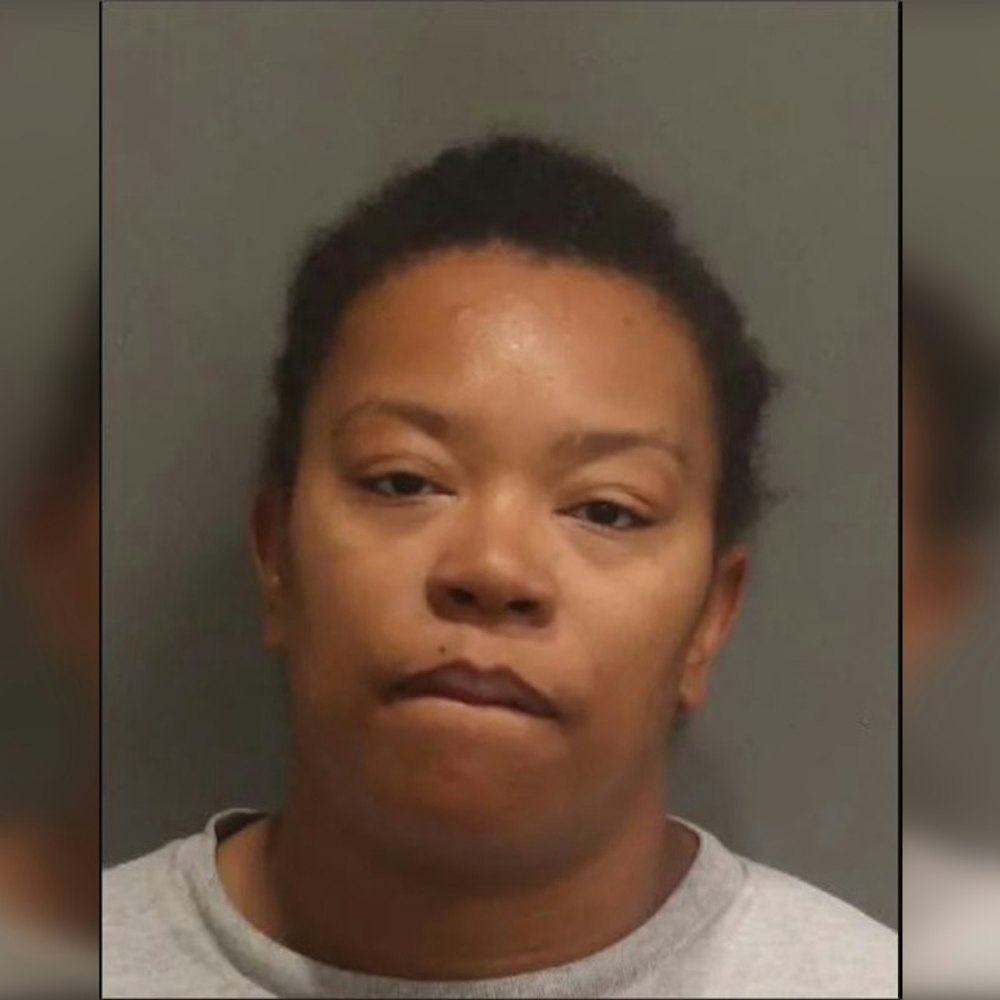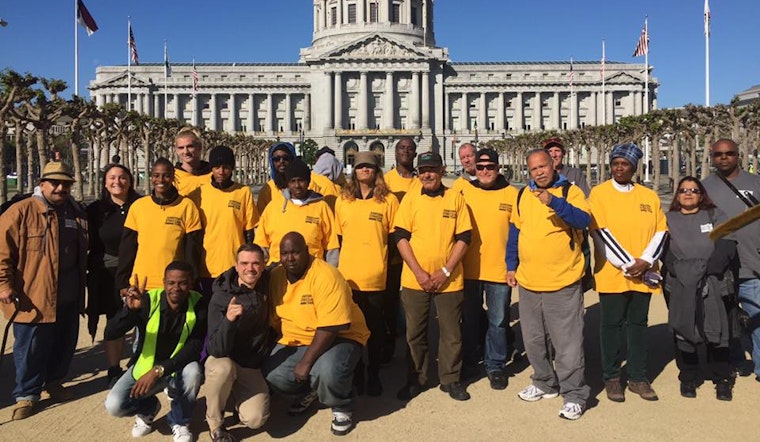
From 8am to noon on weekdays, it's hard to miss the packs of people in yellow shirts who roam UN Plaza, Civic Center Plaza and Mid-Market collecting trash. They're part of an organization called Downtown Streets Team, which recently expanded its workforce development program to downtown San Francisco.
Downtown Streets Team's founder is Eileen Richardson, the original CEO of Napster. While working in venture capital, then leading a number of startups, Eileen regularly popped into food closets in downtown Palo Alto to lend a hand, said her son, Chris Richardson, the program's regional director. "She really fell in love with the homeless population there, and really identified with them, saying, 'One wrong turn in my life and I'd be in their shoes.'"
Certain that the resourceful Silicon Valley community could solve the problem, Eileen set out to end homelessness in six months—sans any understanding of the systems already in place for homeless locals, Chris said. "She kind of viewed it as technology. 'If I can build the fastest growing technology in the world, Napster, then I should be able to solve poverty. Open-source it and put it out to the rest of the country.'"
"That was 11 and a half years ago," he said. "So, as our fearless leader, she realizes how arrogant she was, and how much harder it really is."
While the nonprofit hasn't eradicated homelessness in Palo Alto—or Sunnyvale, San Rafael, and San Jose, the three cities it's expanded to over the past decade—it has found a model that is helping unemployed and underemployed Bay Area residents, offering them work experience through street cleaning teams.
Anyone interested in joining must attend the team's weekly meetings, to put and keep their name on the waiting list. As soon as a spot on the team opens up, they're awarded a bright yellow T-shirt and begin their service every weekday morning.
Through time and effort, team members can move up the ranks to lead a team. Or, with the help of case managers and employment specialists, they can move on to a paying job and work on obtaining affordable housing.
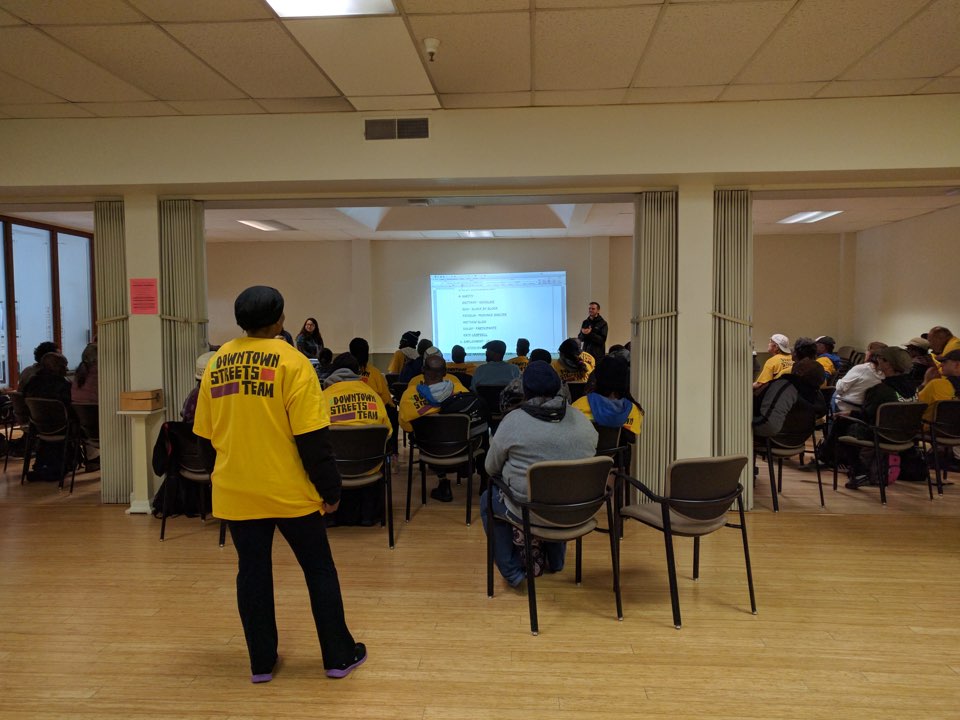
PHOTO: BRITTANY HOPKINS/HOODLINE
Downtown Streets Team doesn't pay individuals for their service, but they do provide team members with gift cards to stores like Safeway and Target, to help cover their basic needs. James Glover, a team lead, said that if the organization provided cash stipends, many individuals would take the money on day one, and likely not return.
Now, nearly a decade after its inception, Downtown Streets Team has come to San Francisco for the first time. Chris Richardson said they were motivated by the current strife between the growing Mid-Market business community and the area's existing homeless and low-income population.
"Longtime lower-income residents may be blaming these tech companies for bringing in all this wealth, driving up the market," he said. "And then conversely, [the business community] is feeling that the homeless problem has gotten so out of control that it's totally affecting their business."
Given that the organization was founded out of the business sector, rather than social work, Downtown Streets Team "is really good at bringing [business owners] into the fold as stakeholders ... that starts with just cleaning the storefronts," Chris Richardson explained. "Then we increase the involvement to volunteer with us, help our folks learn how to apply for jobs and what managers are seeking."
The organization has already recruited a sizable number of community members off the streets or out of single-room occupancy hotels and into the program. "We've already capped out at 24 team members in San Francisco, and that was in just a few weeks," said Brandon Davis, the San Francisco project director.
Much of the outreach to potential recruits is done by team members while they're out clearing debris. Graduates' ability to secure paying jobs has been the top selling point.
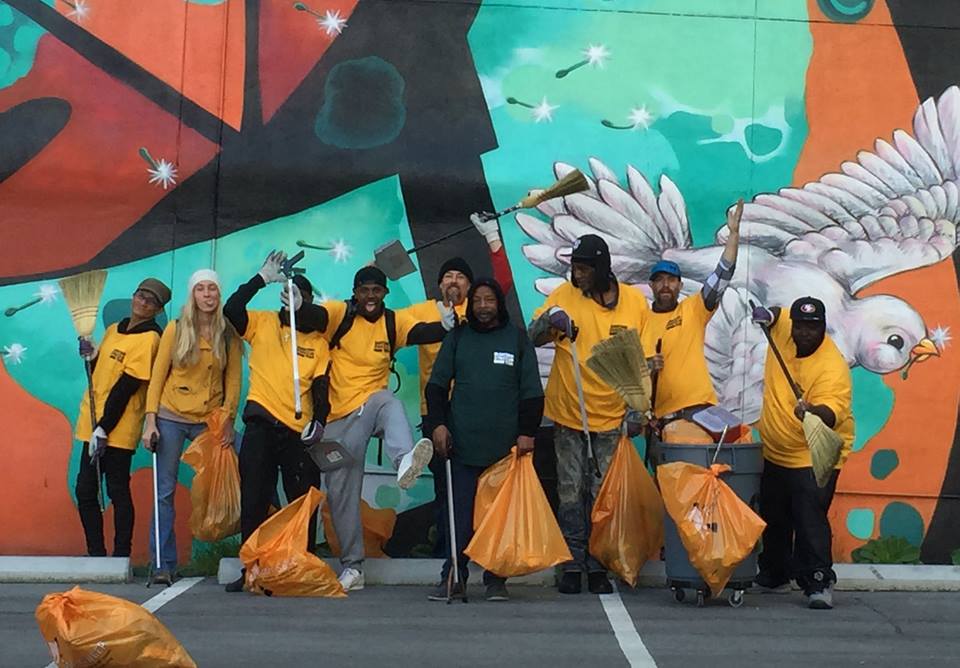
But moving on to full-time employment isn't the only end goal. Glover, the team lead, said he lives in SoMa and receives disability benefits. He's been homeless before, and sees the team as a way to give back to the community. One of his favorite parts of the job is handing out hygiene kits to the homeless. "It makes a big difference," he said.
On the other end of the spectrum is team member Loretta Gooden, who's desperately seeking employment and joined Downtown Streets Team to "get my life back," she said. Gooden traveled the country as a gospel and jazz performer, but returned to San Francisco to care for her father. Though she types 101 words per minute and has experience working as an executive assistant, she said she's been "stuck" ever since.
Gooden admits that she's bored by the daily street cleaning, but "it's better than sitting there, wishing and wanting." When we spoke to her, she was eagerly awaiting an interview for an office job later in the week.
With no shortage of residents joining the waitlist for a yellow shirt, the San Francisco Downtown Streets Team is working to expand its capacity by putting teams on the ground in other neighborhoods. A Union Square team is already in the works, and the Mission may soon follow.
Anyone interested in getting involved in the program—either as a team member or a volunteer—is encouraged to attend the weekly team meeting, held at 12:30pm Tuesdays at 65 9th St.



